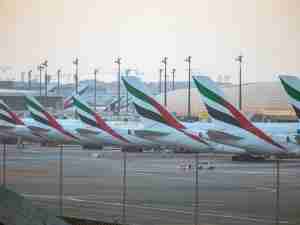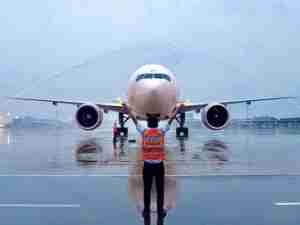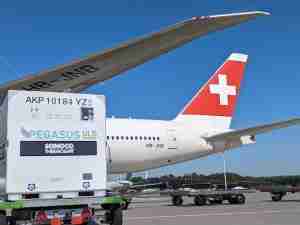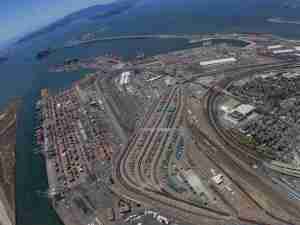Europe’s Airbus Stresses U.S. Ties as Trump Talks Tough on Trade
By: Guy Johnson and Christopher Jasper | Jan 11 2017 at 02:05 PM | Air Cargo
Airbus Group SE, the chief rival of America’s biggest exporter Boeing Co., asserted its bona fides as a U.S. manufacturer a week before Donald Trump assumes the presidency after a campaign spent complaining about unfair trade.
Having a factory in Mobile, Alabama, that employs more than 1,000 people making A320 single-aisle jets shows Airbus’s commitment to the U.S., one of the biggest markets for its aircraft, Fabrice Bregier, who runs the European planemaker’s jetliner arm, said in an interview Wednesday.
“We delivered on our promises and we created American jobs,” Bregier said, adding that the plant is in a “fantastic location.” The 53-acre site handed its first plane to JetBlue Airways Corp. in 2016 and produced 16 more for U.S. carriers in the year, with production set to accelerate to four aircraft a month in 2017, he said.
Trump has espoused a protectionist approach in the run-up to his inauguration on Jan. 20, while condemning homegrown companies that have moved jobs overseas—something that could work in Airbus’s favor given the $600 million Alabama investment.
Ford Motor Co. last week scrapped plans for a $1.6 billion expansion in Mexico and said it would add posts in Michigan after Trump promised levies on companies outsourcing employment. Aerospace manufacturers including Boeing, Lockheed Martin Corp. and United Technologies Corp. have also been singled out for criticism over jobs or the cost of government contracts.
Supply-Chain Boost
“He is supposed to support the U.S. economy and U.S. jobs, and as a matter of fact we anticipated that, because we decided a few years ago to invest massively in the assembly of the A320,” Bregier told Bloomberg TV. Not only is Airbus now a major employer in the U.S., it’s a bigger supporter of component manufacturers there than its main rival, the executive added.
“We are probably procuring more U.S. equipment than our competitor Boeing,” he said. “Our biggest supply-chain contributor is American suppliers.”
Airbus, which has more than 1,400 jets operating with North American carriers and 500 orders outstanding, spends more than 40 percent of its aircraft-related procurement in the U.S., helping to support almost 250,000 jobs across 40 states at companies included Alcoa Corp., General Electric Co., Honeywell International Inc. and Rockwell Collins Inc., according to its website.
Boeing has a U.S. workforce of almost 140,000 employees, Doug Alder, a spokesman for the Chicago-based company said in an e-mail. About 80 percent of Boeing’s suppliers are in the U.S. In 2015, the most recent year for which data is available, the U.S. planemaker paid about $50 billion to more than 13,600 businesses in the country, supporting 1.5 million jobs at its suppliers, Alder said.
Iran Sale
Bregier said he has no concerns about a deal to sell 100 planes to Iran surviving the U.S. leadership transition, despite Trump’s criticism of the easing of sanctions on trade with the Islamic republic.
“We are an international player and Iran is a big market,” he said. “We abide by all the regulations: international, European and, of course, American. We got all the international agreements and licenses, and especially licenses from the U.S. administration, which was quite a long process.”
Bregier spoke at Airbus’s headquarters in Toulouse, France, after the company revealed that it racked up 731 sales in 2016, lifting its backlog and beating Boeing, aided by 320 jetliner orders in December alone, the Iran Air planes among them. Its U.S. rival has agreed to provide a batch of 80 jets to the Mideast carrier.
Airbus delivered 688 aircraft in the year, compared with Boeing’s 748.












